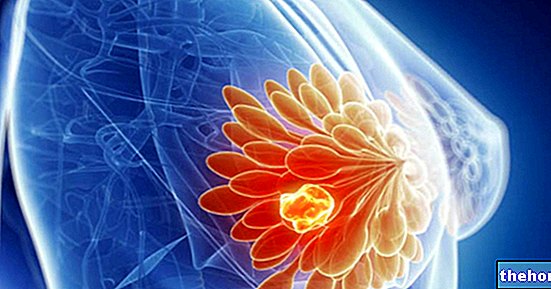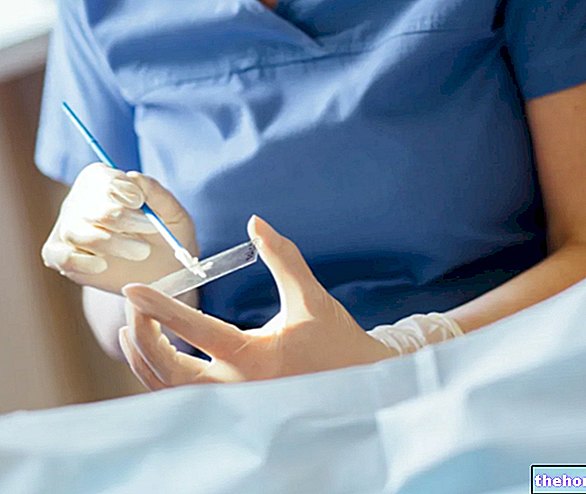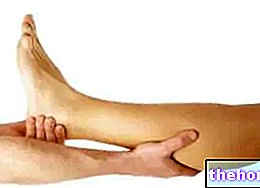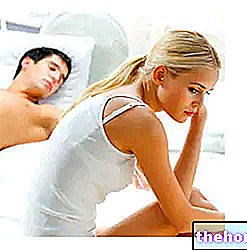Vaginismus means a discomfort in the female sexual sphere.
It consists of the reflex muscle contraction of the vagina and pelvic floor.
From a sexual point of view, vaginismus is highly disabling, as it “physically” hinders penetration (obviously necessary for coitus and gynecological examinations), which becomes difficult and painful (dyspareunia).

It is a real nervous "reflex" and its manifestation does not depend on the will of the person who is afflicted by it. It is classified into 4 severity levels. It is generally permanent and only rarely is it transient.
Vaginismus is NOT included in the forms of frigidity; in fact the women who suffer from it maintain the libido and the ability to reach orgasm with the stimulation of the clitoris.
NB: Physical attraction towards the partner is not a cause of vaginismus.
Unfortunately, even reaching a balance between sexual needs, various problems can arise in the attempt to conceive.
The published material is intended to allow quick access to general advice, suggestions and remedies that doctors and textbooks usually dispense for the treatment of vaginismus; such indications must in no way substitute the opinion of the attending physician or other health specialists in the sector who are treating the patient.
What to do
- There is no effective preventive protocol towards vaginismus; however, there are a number of mistakes you should NOT make. Being a psychosomatic aetiology discomfort, what harms one subject could be totally harmless for others and vice versa.
- Recognize and objectively evaluate the symptoms of vaginismus, without however self-convincing of being afflicted by them before receiving a medical diagnosis:
- Contraction of the perineum, vulva and vaginal orifice.
- Pain during penetration to the point of impossibility.
- Features of sudden and involuntary onset.
- Understanding the causes of vaginismus: This can help a woman identify the disorder and assess its severity, reduce it, live with it or try to heal it:
- Causes of a psychological nature. They are based on one or more emotional traumas attributable to penetration:
- Failure or pain in the first attempts at penetration.
- Experiences of sexual abuse.
- Subjective characteristics of the woman, especially concerning the history of sexual life.
- On the other hand, a good part of the female population does not complain of any negative experiences and shows an individual predisposition. This concerns emotional management and the relationship with one's body. For example:
- Expression of one's adult femininity.
- In the educational phase, blaming of sexuality.
- Conviction of severe pain at first intercourse.
- Association of several factors (for example, belief of severe pain and muscle stiffness at first intercourse, with real suffering).
- Entering the menopause phase and related difficulties:
- Altered mood.
- Reduction of libido.
- Body modification (shape change, hair growth etc).
- Impaired vaginal lubrication (dryness).
- Go to a specialist: the first reference figure is the gynecologist, who will check the total absence of pathological causes.
- With a concrete diagnosis of vaginismus, it is important to inform the partner.
- The male partner should indulge the woman's reaction to the problem. Any negative reactions would prove to be absolutely counterproductive.
- If possible, have regular, satisfying intercourse in the absence of penetration.
- From a curative point of view, the possible treatments are:
- Sexological or psycho-sexological therapy. It consists of the association between psychotherapy and muscle response management training. The means are:
- Induced and autogenic relaxation techniques.
- Management of psychophysiological mechanisms.
- Assignment of exercises (so to speak) to be performed privately (sex therapy). NB: If present, the participation of the partner is essential.
- Drug therapy: anxiolytics, antidepressants and muscle relaxants.
- In the event that the couple wishes to become pregnant, it is a good idea not to exclude technological aids for conception. In any case, it is essential to avoid blaming the other half of the couple (on the one hand it could worsen vaginismus, on the other it could favor the onset of problems for the male).
What NOT to do
- Convince yourself that you have a vagina that is too narrow to deal with coitus: the dilatation capacity of the vagina is very high for any woman and has no relevance in the onset of vaginismus.
- Ignore the symptoms of vaginismus.
- Do not inform and involve the partner.
- Blame yourself or your partner.
- Avoid the problem and withdraw into yourself.
- Find excuses to avoid going to a specialist.
- Give up.
- Forcing coitus by experiencing pain and aggravating the situation.
- Hinder the search (in therapy) of possible causes.
- Repress, limit yourself or not accept your sexuality.
- Rejecting menopause and what it entails.
- For the male partner: exert psychological pressure, show significant discomfort, force a choice, estrange, close the dialogue, force coitus, interrupt sexual intercourse and give primary importance to penetration.
- Do not perform or abandon sexological or psycho-sexological therapy early: to be effective it can last several years.
- Refuse drug therapy.
- If sighed, abandon the idea of pregnancy.
What to eat
There is no specific diet for the treatment of vaginismus. However, some tips may prove useful:
- Nutritional balance and good distribution of meals: a correct diet helps to regulate the lifestyle. In turn, a regular lifestyle helps increase peace of mind and reduce stress. We recommend:
- Eat 5 meals a day, 3 main and 2 secondary. The evening one must NOT be the most abundant.
- To distribute the energy correctly, that is approximately: 45-60% carbohydrates, 25-30% lipids and the rest in proteins.
- Prefer fresh foods, partly raw and always of good quality: they facilitate the achievement of the recommended rations for essential molecules (omega 3 and omega 6 fatty acids, essential amino acids, salts and vitamins).
- Cover the need for fiber and water to prevent constipation: at least 30g / day. The consumption of probiotic foods can help.
- Consume meals that are not too abundant or late in anticipation of coitus: the feeling of gastric fullness can reduce libido, which is instead necessary during vaginismus therapy.
- In the absence of drug therapy, consuming an alcoholic unit (glass of wine or small bottle of beer) in the meal before coitus can promote mental relaxation.
What NOT to Eat
There are no foods that are less recommended than others. However, it is recommended to avoid:
- Single-issue diets.
- Vegan diet.
- Diet free of vegetables and greens.
- Diets based solely on:
- Cooked foods.
- Preserved foods.
- Avoid alcohol abuse. In addition to compromising metabolism, intestinal absorption and health in general, it can cause drowsiness and decreased libido.
- It is necessary to consume the right amount of carbohydrates: diets that are too low in carbohydrates (especially when they are also deficient in fats) are responsible for a worsening of mood and a general feeling of discomfort.
Natural Cures and Remedies
- All activities that improve relaxation are preparatory to psycho-sexological therapy (it does not matter if they act by self-suggestion or thanks to real physiological mechanisms):
- Phytotherapy: based on the intake of plants capable of increasing the levels of relaxation and decreasing those of stress, in particular: valerian, hawthorn, lemon balm and especially passion flower.
- Oligotherapy: based on the administration of minerals, in particular manganese and cobalt. The latter should be taken once a day for 3 weeks, after which it is reduced to 2-3 doses per week. It can be supplemented with magnesium.
- Gemmotherapy: based on the administration of buds, in particular: Ficus carica (fig) and Tilia tormentosa (linden).
- Aromatherapy: based on the inhalation (or cutaneous absorption) of neurosedative volatile essential oils, in particular: lavender, lemon balm, chamomile and bitter orange.
- Yoga, pilates and any sport or hobby that has a positive effect on mood, reducing stress and "disconnecting the plug" from the thought of vaginismus.
Pharmacological treatment
- Serotonin Reuptake Inhibitors (SSRIs): Help reduce anxiety.
- Diazepam: helps to decrease muscle hypertonus.
- Muscle relaxants: to be used in severe cases. Some specialists suggest the use of injectable botulinum toxin.
Prevention
- Vaginismus prevention is fundamentally based on reasonableness and logic:
- First of all, education: creating taboos, false beliefs, restrictions and fears is extremely predisposing to the onset of vaginismus.
- Conscious of the occurrence of sexual abuse, seek psychological help immediately.
- Ensure good harmony and mutual understanding in the couple: selfish and unreasonable behavior on the part of the male partner is counterproductive, as is a lack of communication on the part of the woman. Such attitudes can be responsible for the onset of vaginismus even after many years of relationship, for example in the menopause phase or during emotionally difficult periods for the woman (bereavement, separation from a child, etc.).
- Do not ignore the relationship problems: the overcoming of certain obstacles and the achievement of emotional-sentimental tranquility favor the restoration of "psychological balance. It is essential to take into consideration any possibility and be willing to change, but without acting hastily. Some issues can only be resolved by taking a long time (be it behavior / attitude change or relationship breakdown).
- Accepting one's sexual orientation and fantasies: Vaginismus can also occur in repressed homosexual or bisexual women.
Medical Treatments
- The only invasive medical treatment is the localized injection of botulinum toxin. It is used as a powerful muscle relaxant, but represents the "last resort" in curative treatment (generally in grade III and IV vaginismus). Botulinum toxin has a variable duration (a few months), after which it should be repeated. It is mainly injected into the levator muscle of the anus, the one most responsible for the typical spasm of vaginismus.




























